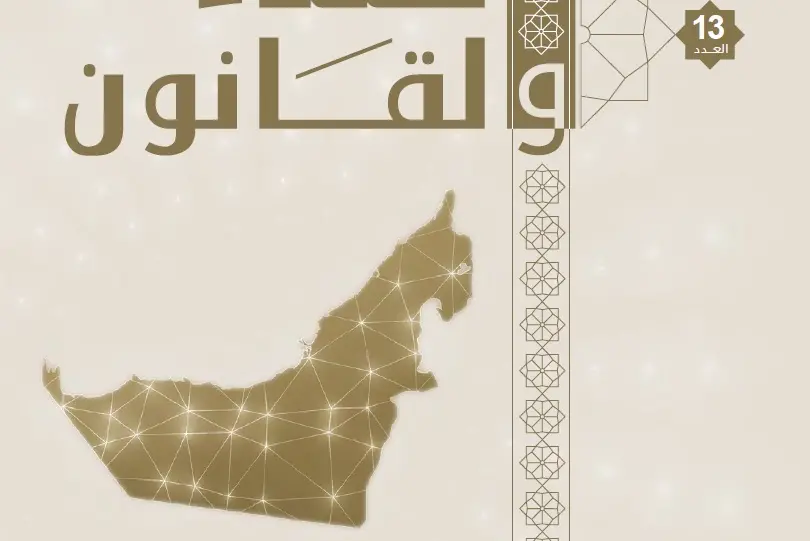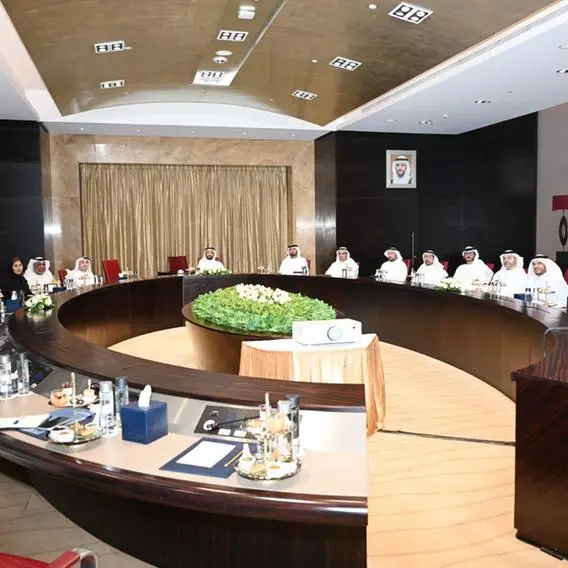PHOTO
The Center for Judicial Research and Studies at the Abu Dhabi Judicial Department published the thirteenth issue of the peer-reviewed scientific journal “Judiciary and Law,” which includes a collection of specialised research and studies to enrich judicial work, follow up on judicial jurisprudence, and stay abreast of global legislative developments as well as the issues and challenges brought on by social and economic transformations that call for searching for diligent pursuit of effective solutions grounded in national legislation and its interaction with the tributaries of human civilisation.
The editorial of the most recent edition of "Judiciary and Law" magazine, which was published in an electronic format and was accessible on the Judicial Department's website, discussed the Department's initiatives in compliance with the directives of His Highness Sheikh Mansour bin Zayed Al Nahyan, Vice President of the UAE, Deputy Prime Minister, Chairman of the Presidential Court, and Chairman of the Judicial Department in Abu Dhabi by promoting and strengthening legal culture in Abu Dhabi, as a fundamental foundation for the court and a stable central axis for growing its apparatus and bolstering its capabilities, while keeping in mind the significance of research and innovation in carrying out the great mission assigned to it of achieving justice and protecting rights.
A comparative legal study on the evolution of electronic proof provisions as a result of scientific and technological advancements was published in the magazine. This study provided insight into national, international, and local legislation as well as the ways that legislators in various nations have responded to changes in their legal systems. It also worked to advance the system of proof in civil and commercial matters. as well as the development of electronic verification techniques.
As to the significance of investment legislation in enhancing the business environment, the study focused on elucidating the crucial role played by legal and economic jurisprudence in general, as well as the broader role of economic legislation, with a particular focus on investment, in maintaining a stable macroeconomic climate and fostering business growth. This, in turn, facilitates the attraction of foreign investments and the augmentation of growth rates. It is imperative to establish a legal framework characterised by stability and modernisation, which can effectively adapt to global economic advancements.
The study, titled "Enhancing the Appeal of Emirati Soft Power through Legislation," examined the elements that played a role in attracting the Emirates to the soft power model. These elements included the federal model, the economic development model, efficient and intelligent government administration, commitment to humanitarian responsibility, and promotion of tolerance, coexistence, cultural exchange, and intellectual openness. Additionally, the study highlighted the implementation of cultural initiatives at both the regional and global levels.
The study highlighted the significant function that legislation and the judicial institution occupy in fortifying the UAE's soft power, particularly in the realm of advancing public rights and freedoms, ensuring effective justice, consistently revising legislation to align with contemporary social and technological advancements, and continually envisioning the future of justice to enhance and amend legal procedures, thereby contributing to the attainment of international justice.


















